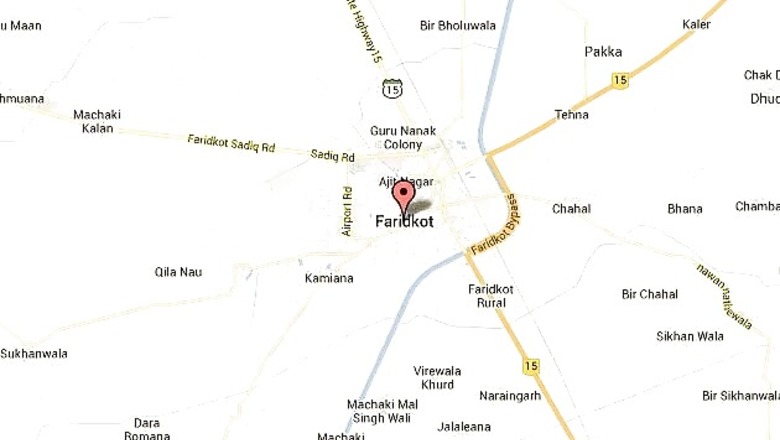
views
Chandigarh: In a fresh twist, nephew of erstwhile Maharaja of Faridkot Harinder Singh Brar has decided to challenge a recent court order which granted inheritance of assets worth Rs 20,000 crore to the late ruler's two surviving daughters. Kanwar Bharatinder Singh, son of the Maharaja's younger brother, late Kanwar Manjitinder Singh, has staked claim to the property citing the "Rule of Primogeniture", according to which property rights are granted to first born son or eldest living male blood relative.
"It has been appearing in the media that the will of the Maharaja of 1982, which a court in Chandigarh has declared as illegal and void, was only being disputed by the daughter Rajkumari Amrit Kaur," Kanwar Bharatinder Singh's son Amarinder Singh Brar told reporters on Monday.
"This is incorrect as the will in question is also being disputed by late Kanwar Manjitinder Singh, the Maharaja's younger brother, now represented by Kanwar Bharatinder Singh, his (Manjitinder's) son," Amarinder said, adding that the order will be challenged before a Sessions Court.
Amarinder, who was accompanied by his lawyers, said Bharatinder was undergoing treatment at a private hospital in Mohali after his knee transplant surgery. "Kanwar Bharatinder Singh will soon file an appeal in exercise of his rights under the Civil Procedure Code," he said.
Amarinder claimed that the Maharaja had executed another registered will dated May 22, 1952, regarding certain specific properties. He claimed that this will was undisputed till date and should "automatically" apply after the 1982 will was declared as illegal by court. After a two-decade long battle, the ruler's two daughters were granted inheritance to assets including the Faridkot House at Copernicus Marg near India Gate, palace and Manimajra Fort in Faridkot in Punjab, properties in Mashobra, Shimla, besides bank deposits, jewellery and vintage cars including a Rolls Royce.
Amarinder claimed that his late grandfather Kanwar Manjitinder had also contested the Maharaja's will of 1982 in March 1992, months before Amrit challenged it in October 1992. He claimed that Amrit has been specifically excluded in the (1952) will wherein his Highness (the Maharaja) wrote, "This will has been necessitated by the fact that I do not want to leave any property by will in favour of my daughter, Rajkumari Amrit Kaur".
He said Bharatinder will invoke the Rule of Primogeniture, "preserved by the Article Covenant signed between the Government of India and the Ruler of Faridkot State when the State ceded it's territory to India, on May 5, 1948," to challenge granting inheritance to the late ruler's two daughters.
Amarinder said Section 5 (2) of the Hindu Succession Act, 1956 exempts the application of the Act to the properties of the erstwhile rulers. The Chandigarh district court had on July 28 declared the will, which had entitled Maharawal Khewaji Trust, which manages the properties of the erstwhile Maharaja, as the caretaker of the properties, as illegal and void and granted inheritance to Brar's two daughters, Amrit and Deepinder Kaur.
The former ruler had properties worth around Rs 20,000 crore, including 300 acres of land, an aerodrome in Faridkot, three planes, two forts, Raj Mahal complex in Faridkot, Faridkot House on New Delhi's Copernicus Marg, Manimajra fort in Chandigarh, vintage cars including a Roll Royce, gold, diamonds and around two dozen buildings across the nation and a museum.
Amrit had alleged that her father had never made any will and it was forged only to usurp the wealth. The suspicion about the 1982 will arose as the Maharaja excluded his mother Mohinder Kaur and his wife Narinder Kaur while all the servants, irrespective of their designation, and lawyers were appointed trustees.
The suspicion about the 1982 will arose as the Maharaja excluded his mother Mohinder Kaur and his wife Narinder Kaur while all the servants, irrespective of their designation, and lawyers were appointed trustees.
The erstwhile ruler was allowed to keep these properties after the country's Independence in 1947. Brar had a son, Harmohinder Singh, who died in a road accident in 1981. Following this, Brar went into depression. His third daughter Maheepinder Kaur died in 2000 in Shimla.
Amrit had been divested of all the powers of heiress on the grounds that she had married against the wishes of the late Maharaja.















Comments
0 comment